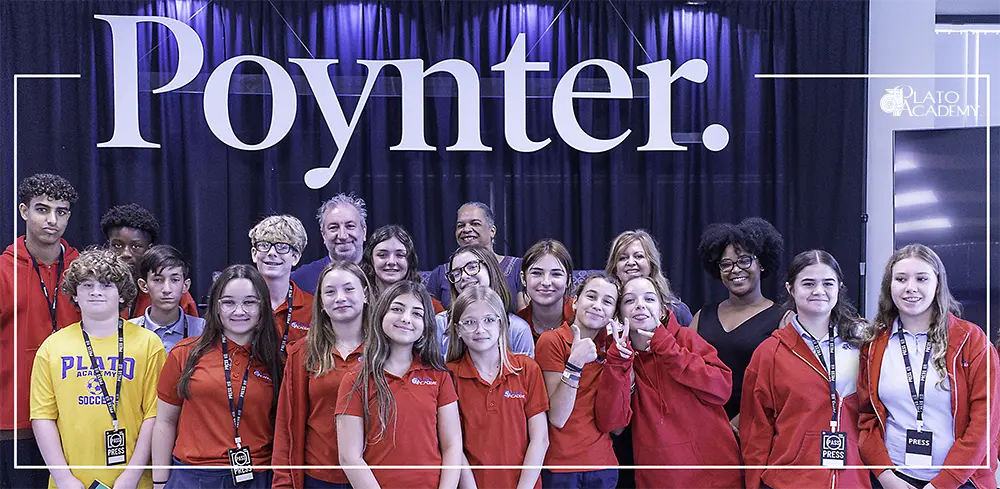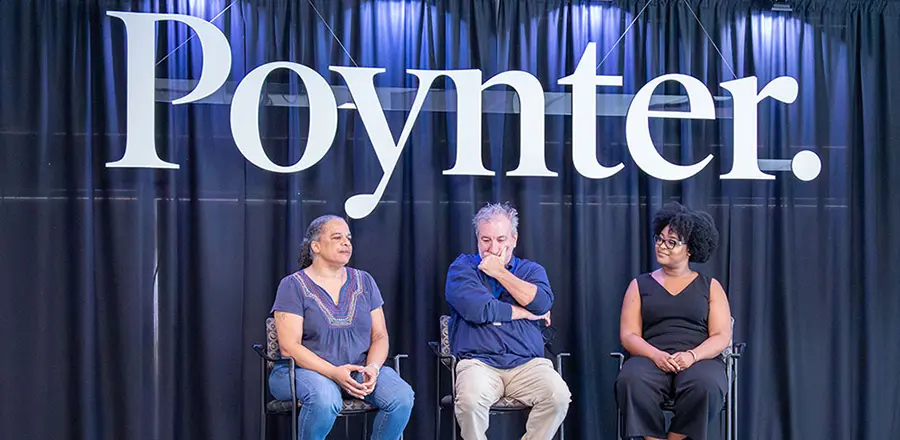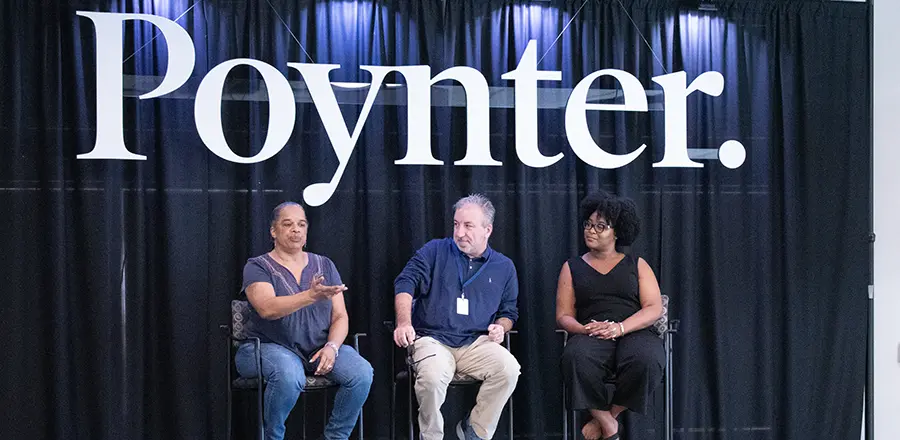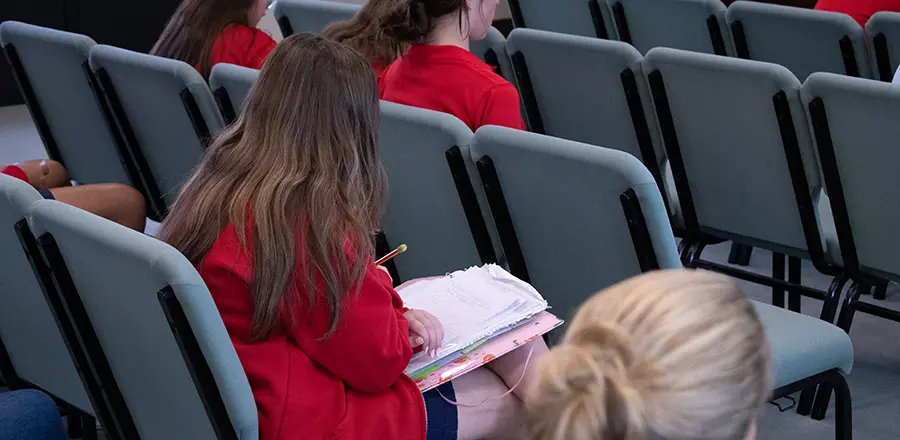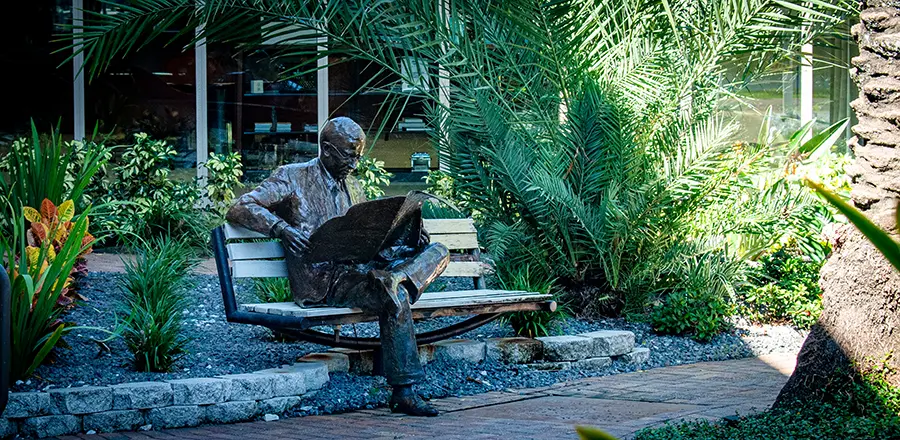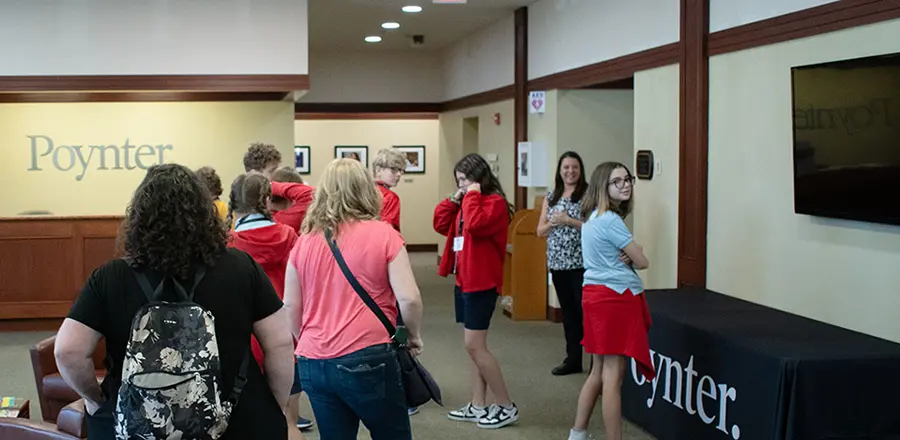ST. PETERSBURG, Fla. – Recently, a group of seventh graders from Plato Academy Palm Harbor visited the Poynter Institute in St. Petersburg, stepping into a world where the First Amendment meets deadline pressure and the weight of public trust.
The visit, organized by their teacher Mrs. Lialios, brought students face-to-face with an institution that has spent nearly five decades training journalists to navigate the increasingly complex terrain of modern media.
A Classroom Without Walls
The Poynter Institute occupies a distinctive campus in St. Petersburg, where Florida palms shade walkways and Keystone stonework frames spaces designed for serious work. Here, professional reporters gather to refine their craft, fact-checkers learn new verification techniques, and students consider careers in an industry undergoing rapid transformation.
Founded as a nonprofit committed to strengthening democratic discourse through quality journalism, Poynter trains thousands of media professionals each year. Its curriculum emphasizes ethical reporting, verification methods, and the evolving challenges of delivering accurate information to the public.
Questions About Trust and Technology
Throughout the day, conversations ranged from the mechanics of good writing to broader questions about credibility in an era when anyone with a smartphone can claim to be a publisher.
Students discussed the relationship between journalism and civic participation, examining how reporters gather evidence, verify sources, and present information that helps citizens make informed decisions. The role of technology emerged as a recurring theme, particularly how artificial intelligence tools might be deployed responsibly, and why human judgment remains essential in the editorial process.
The group also considered contemporary challenges: the difficulty of maintaining focus in a digital environment designed to fragment attention, the difference between opinion and reporting, and why professional standards matter when misinformation spreads rapidly online.
The Work Behind the Story
Students observed spaces where reporters collaborate under deadlines, learned about the institute’s training programs for professionals at all career stages, and discussed how changing business models affect newsroom resources.
The students asked questions about the decision-making process behind major investigations, the skills required to pursue journalism as a career, and how reporters maintain objectivity when covering controversial subjects.
Lessons Beyond the Classroom
For seventh graders accustomed to consuming news through social media feeds and algorithm-driven recommendations, the experience offered a different perspective on how information reaches the public.
The visit concluded with students considering their own relationship to media, as consumers, potential creators, and future voters who will need to distinguish between credible reporting and persuasive content designed to manipulate rather than inform.
As the group departed for Palm Harbor, they carried with them a clearer sense of journalism’s purpose: not as entertainment or advocacy, but as a discipline committed to verified facts, accountable institutions, and an informed citizenry.

